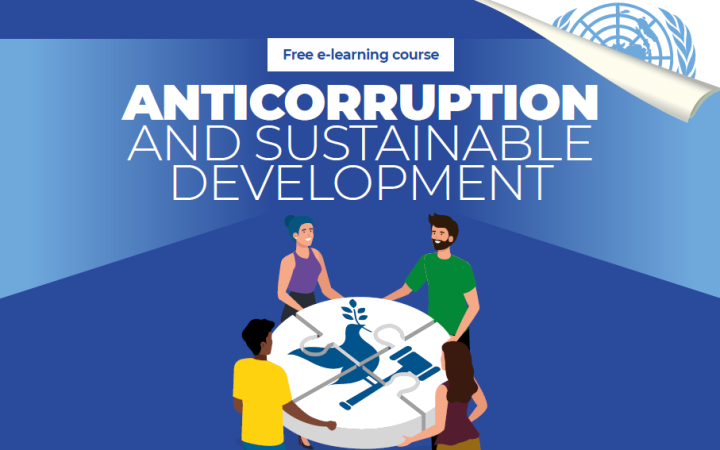Corruption hinders sustainable development in all countries. In order to tackle its root causes and consequences as well as to find solutions for prevention, accountability and redress, the impact of mainstreaming knowledge is a powerful resource towards transforming the lives of individuals and societies, as a whole. Mainstreaming knowledge about this problematic pursues the transformation of discriminatory social institutions, laws, cultural norms and community practices, such as those limiting access to property rights or restricting access to public spaces.
In this regard, there is a common agreement at the international level on the need of suppressing and preventing corruption because of its negative impacts and its ripple effects for employment, leadership, decision-making at all levels - among other repercussions. Therefore, the creation of spaces to raise awareness represents an opportunity to enhance capabilities and share good practices towards a culture of learning, which are extremely important to achieve the Agenda 2030 in a crosscutting manner, in particular SDG 1 (No Poverty), SDG 10 (Reduce Inequalities), SDG 16 (Peace, Justice and Strong Institutions) and SDG 17 (Partnerships for the Goals).
As a contribution to this endeavor and in line with the SDG Action Campaigns goals, the Rule of Law and Anti-Corruption Centre (ROLACC) and the United Institute for Training and Research (UNITAR) have brought together their expertise and practical knowledge to collaboratively develop a blended capacity building initiative via an online knowledge platform, e-learning courses focused on sustainable development, Human Rights, and technologies, ‘Training of Trainers’ workshops, as well as a Global Conference.
The online Knowledge Platform is expected to be launched soon. It will serve as a database for material that aims to better explain anticorruption issues, specifically under the capacity building perspective.
The course on “Anticorruption and Sustainable Development: Building inclusive and transparent societies for all” follows the UN Disability-Inclusive approach, which recognizes that combating corruption requires improving accessibility services, information, and participation of persons with disabilities. Hence, this tool includes sign language video and narrative audio.
The first ‘ToT Workshop on Anticorruption and Sustainable Development’ took place from the 9th to 11th of December 2019 in Kigali, Rwanda. It was designed to increase the knowledge of experts on the problematic of corruption and its link with sustainable development while enhancing capabilities to design and deliver effective training programs to properly transmit this expertise.
As additional activities, ROLACC and UNITAR have held two Virtual Roundtable Discussions. The first webinar was entitled “The Coronavirus pandemic and Anti-Corruption Efforts in Public Procurement”, held on 20 May 2020, and the second one on “Anticorruption and Sustainable Development”, held on 23 November 2020. More than 1000 persons have accessed the learning initiatives developed to date.
For more information about these initiatives, please view the brochure of the course here, as well as the recordings of the two virtual roundtables held here:


